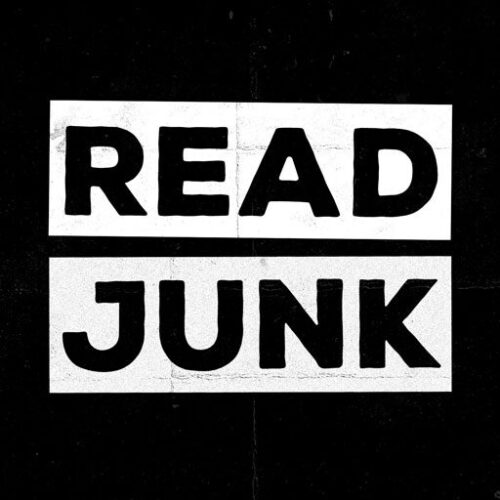***SPOILERS***
Warner Brothers and DC Comics have surpassed typical summer blockbuster expectations with the delivery of Wonder Woman, a film that is both cultural relative and remarkably poignant. It’s a big budget film that demonstrates depth and takes itself seriously, challenging the audience to think about issues that plague our society. Plenty has been written on the topic of feminism, but for me, the film was more about war. Whether the filmmakers intended to do so or not, Wonder Woman alludes to the conflict in Syria with graphic imagery of chemical warfare as well as the underlying theme of an evil that’s not easily recognized.
The film is set a century ago, yet the symbolism parallels this harrowing era to our own. In one sequence, Wonder Woman [Gal Gadot] comes upon a hapless village that’s been flooded with mustard gas. In shock, she traipses around the lifeless bodies of innocent men, women and children. It’s as if the audience can peer inside our protagonist’s mind as she painfully digests the true horrors of war. We deduce that she’s asking herself: for what purpose did they die? Did they all die in vain? The scene is heart-wrenching and draws an eerie parallel to the real life gas bombs that have targeted villages in Syria, killing thousands of innocent men, women and children in their wake.
At first glance, the international community was outraged by the use of chemical warfare in Syria and there was an outcry for these heinous war crimes to end. The problem with this rhetoric is that for the war in Syria, like so many conflicts, it’s difficult to distinguish between who’s right and who’s wrong. It all comes down to a matter of perspective and incompatible realisms. Furthermore, as is so often the case, it’s entirely possible for all parties involved to be perpetuating the conflict as they are unwilling to move beyond blind hatred and revenge.
For Wonder Woman, the complex nature of war becomes a valuable sub theme that’s worth a deeper and darker exploration. The character of Wonder Woman is loosely based on Diana, the Greek goddess of the hunt as well as childbirth and women. When she learns about “the war to end all wars” from American spy in distress Steve Trevor [Chris Pine], she assumes it is the return of Ares, the god of war. Diana – greatly naive to the complexity of the situation – decides that she is the only one who can end the bloodshed by destroying Ares once and for all.
Steve agrees to take Diana to Ares so he can complete his own mission, which is to deliver intelligence about Germany’s development of chemical weapons. The truth is that Steve doesn’t believe Ares exists. When Diana persists, he’s quick to point a finger at the Germans. This is despite the fact that, historically speaking, chemical weapons were deployed by both sides of the conflict.
Steve is eventually exposed for his own sense of misconduct and a blind hatred towards an entire group of people. Under the assumption that Steve’s greatest foe, a German officer who’s piloting the chemical weapons program, must be Ares, Diana engages in battle with this villain. The real twist is revealed when we learn that he was the wrong enemy and that Ares was hiding behind the guise of a British ally all along.
In a pivotal scene following these character deceptions, Diana has the opportunity to destroy the scientist who was the mastermind behind the chemical weapons’ development. Perplexed, Diana is unable to kill the scientist. She’s overwhelmed by the complexity of not being able to decipher between her actual nemesis and the wretched victims of warfare. It presents the quandary of saving a world where it’s almost impossible to discern between those acting on good and those motivated by evil.
Diana’s incertitude is yet another stark parallel to the war in Syria, which seems to grow more convoluted with each passing day. Like many people, I try to stay informed, yet find myself overwhelmed by the complexity of the situation. Perhaps that’s why so many turn a blind eye and ignore the conflict in Syria entirely. From what I do understand, it’s almost impossible to pinpoint a single enemy in Syria because so many different governments and regimes have had their hands in the pot. No doubt everyone thought that they were in the right by their actions, so who’s to say which wrong was the wrongest? If the fictional Wonder Woman existed in real life and tried to save Syria today, she’d likely be equally as bewildered and distraught by the conflict.
It seems the mainstream media won’t touch the conflict in Syria with a ten foot pole, and there’s not a ton of popular culture that’s willing to tackle the complex nature of the first world war, either. Perhaps it’s because there were no standout villains or victories like there were with the second world war, which filmmakers might find easier to glamorize. Even the original Wonder Woman took place during World War II in the comics, which makes it all the more interesting that filmmakers opted to reset the clock on her story.
My previous exposure to World War I was through the novel A Farewell to Arms, where author Ernest Hemingway aligns this brutal conflict with the death of chivalry. It was a departure from a time when just war theory was revered, when warriors fought face to face with their enemies with courage, honor, courtesy and justice. The Great War was eminently significant because it initiated an era of anonymous holocausts and weapons of mass destruction.
In the film, Diana observes how soldiers don’t battle one another directly and expresses contempt for how they attack one another from afar. She’s disillusioned by this type of cowardly crusade and distraught for the innocents dying in the trenches. In one of the film’s most epic battle scenes, Diana is enveloped by smoke and pyrotechnics as she unapologetically forges across the front in a quest to confront Ares. In my opinion, it’s this refusal to rival her foe from a distance that makes Wonder Woman the most chivalrous super hero of all.
Unfortunately, it would seem that chivalry doesn’t mean squat in a world where there are so many crossed lines and intricacies in a conflict. The only thing we do know for certain is that the cycle of warfare will continue to be perpetuated.
“It’s the future,” remarks one of the film’s characters as they come upon a large airplane loaded with enough chemical bombs to wipe out an entire population. One hundred years after the movie was set, real chemical bombs were falling from planes over Syria. When we first heard the news, we were all like Diana: we thought we could intervene and simply destroy the enemy without full comprehension of who was to blame.
Make no mistake, Wonder Woman is a fun and exciting fantasy adventure. It’s also daring in that it begins to peel back the layers of this subject matter while acknowledging the atrocities of chemical weaponry. By the end of end of the film, audiences are left with a fleeting sense of victory that comes with a suspicion that Ares has not been entirely vanquished. We all know that, what was then referred to as “The Great War” did not succeed in being the war to end all wars. Triumph was short lived as the hatred regenerated with countless wars ever since and – no doubt – more to come.
Wonder Woman has the power to leave us with such a dismal notion that so long as mankind continues to internalize prejudice and hate, the god of war will never cease to exist. It’s with a resolute hope for peace (and not romance) that Wonder Woman proclaims, “Only love can truly save the world”.
Check out Kat Vallera’s Patreon page.

